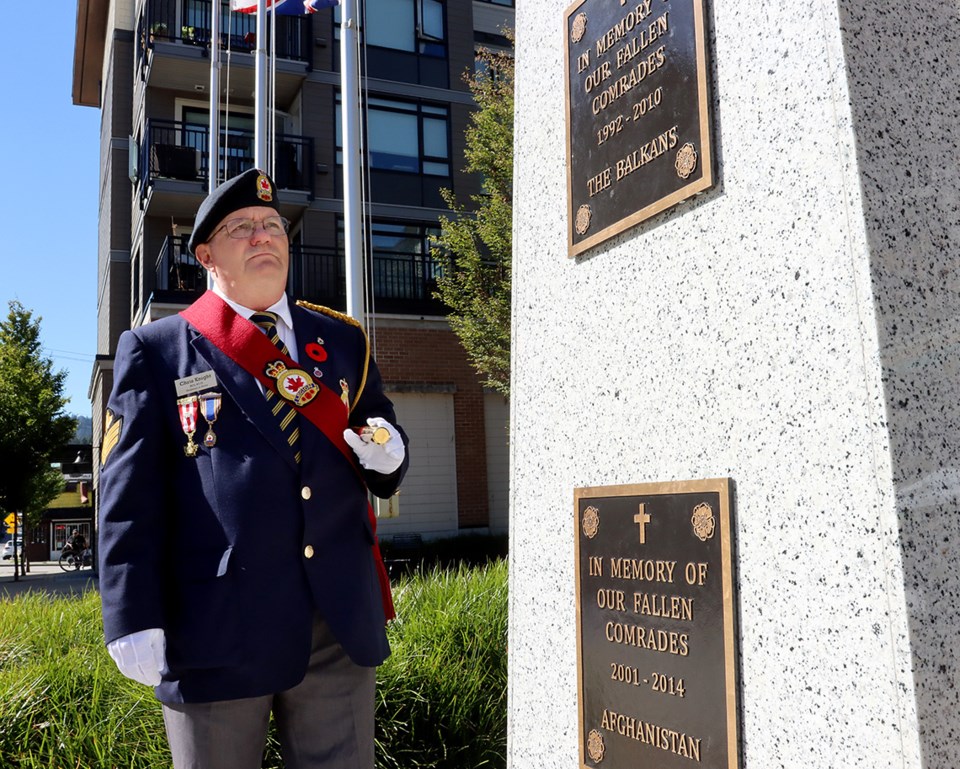A small ceremony at the Port Moody Legion on Saturday (Sept. 17) will carry great meaning for a select group of veterans.
The cenotaph behind the legion will be rededicated with new plaques added to honour the men and women who served in the Balkan conflict from 1992–2010, and in Afghanistan from 2001–2014.
Chris Knight, the legion’s sergeant-at-arms, said a number of soldiers deployed to those wars were local reserves from the 39 Canadian Brigade Group based in Vancouver, as well as the Royal Westminster Regiment from New Westminster.
To see their service formally recognized with brass shields ensures their efforts will not be forgotten.
“It helps the soldiers who did come back feel like they did good, that what they did wasn’t for nothing,” Knight said.
While the simple granite cenotaph has been part of the legion for many years, it was moved to its current location on Spring Street when Branch 119 was rebuilt as part of a new mixed-use commercial and residential development in the same location the facility had occupied since 1955. Branch 119 reopened in 2019.
Knight, who was a radio operator in the Canadian Armed Forces for nine years, said cenotaphs are important touchstones for all veterans.
Having a site that memorializes their service not only gives them a place to remember their own colleagues who may have been lost, but it also helps the healing many need after they return from their deployment: 23 Canadian soldiers died in the Balkans and 158 didn’t come back from Afghanistan.
“It makes them feel a bit better,” Knight said.
Saturday’s ceremony begins at 11 a.m., and should last about 45 minutes. A colour party will be on hand, as well as representatives from each of the Tri-Cities.
Afterward, the soldiers who were lost will be honoured by a unique “missing man” table in the legion.
The setting of a single table adorned with a crisp white tablecloth, dinner plate with a pinch of salt and a bread plate with a slice of lemon — along with red poppy beneath an overturned pint glass and a pair of combat boots placed beneath the chair — is not only a solemn reminder of lives lost, but also a memory of the good times that can be had in the midst of war, Knight explained.
He said the lemon represents the bitter fate of the missing; the salt symbolizes tears shed by waiting families; and the overturned glass shows the missing and fallen can't partake.
“The soldiers understand,” Knight said.



